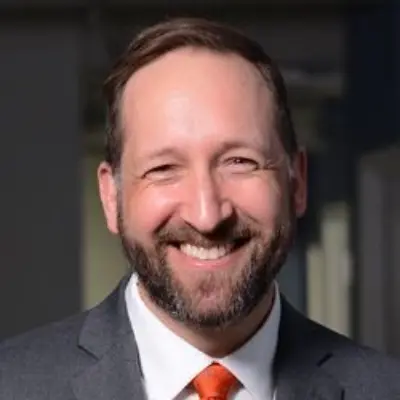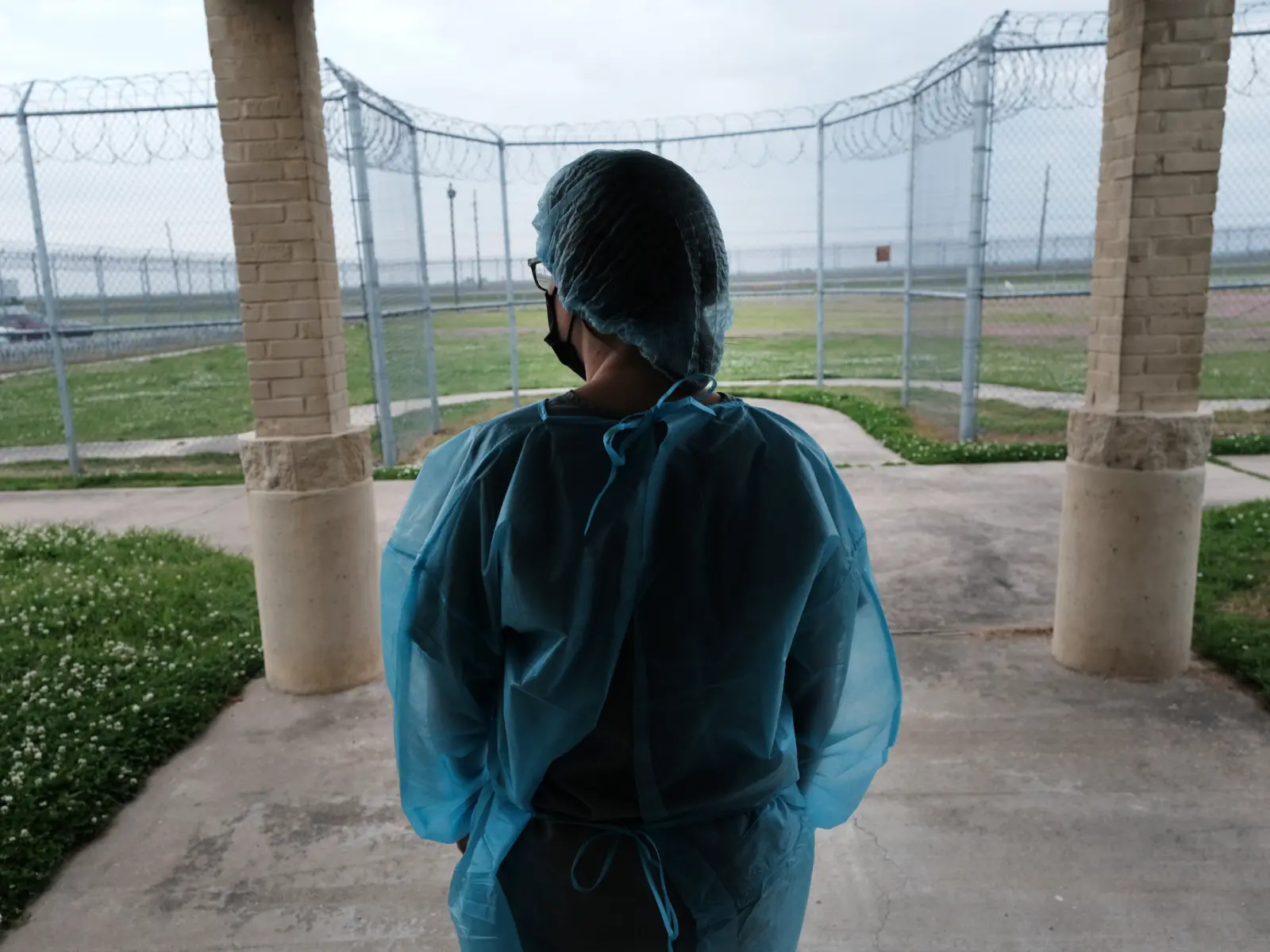When crime spiked in 2020 and 2021 after years of promising declines, it reminded us of its staggering social cost — the pain and suffering of victims, the lives and livelihoods shattered by incarceration, the communities paralyzed by fear. Confronted by crime and the inequities and harms caused by our current criminal justice system, policymakers and the public have increasingly sought to implement reforms. But all too often they well-meaningly pursue solutions that don’t work, or political gridlock and entrenched interests stand in the way of implementing solutions that do.
That’s why Arnold Ventures (AV) is excited to announce its support for the Niskanen Center, a nonprofit public policy organization that uses evidence to address the most pressing criminal justice issues of the moment.
Launched in 2015, Niskanen’s core mission is to strengthen democratic governance and promote widespread opportunity, with a vision that includes a role for both an effective public sector and a competitive private sector. In 2021, Niskanen launched its criminal justice department in an effort to promote evidence-based crime interventions to federal and state lawmakers — without falling victim to the political polarization that can hamstring progress.
“Niskanen is connecting researchers with policymakers and ensuring that the evidence generated in academia is translated and put into the hands of people who can actually use it to create public policy,” says Jennifer Doleac, executive vice president of criminal justice at AV and a former senior fellow at Niskanen. “They’re seeking innovative solutions that won’t get caught up in the same old ideological battles and where there’s a real potential for bipartisan support. That is all very much in line with AV’s vision.”
AV sat down to speak with Greg Newburn, director of criminal justice at Niskanen, about the organization’s advocacy for widespread adoption of crime interventions that research shows can help communities, cut public costs, and contribute to the greater social good.
This interview has been edited for clarity.

Arnold Ventures
How did you find yourself leading the criminal justice team at Niskanen?

Greg Newburn
I spent a little more than a decade at a nonprofit called FAMM, formerly Families Against Mandatory Minimums. Working in that environment, I was very close to the criminal justice reform world. We worked to show that long prison sentences are often counterproductive and a waste of money, and we had lawmakers interested in why long sentences aren’t optimal most of the time. But I was consistently frustrated that we didn’t have an agenda to maintain and enhance public safety, at least nothing that was politically plausible or able to be implemented with quick returns. You can point to research for things like early childhood education, and that’s important, but it won’t pay off for two decades. Policymakers are looking for solutions rooted in evidence that they can implement now and that will generate public safety gains today. I was thrilled to join Niskanen because we’re invested in having something to offer those policymakers.

Arnold Ventures
What’s unique about Niskanen’s vision of criminal justice reform?

Greg Newburn
We’re developing a policy agenda that takes public safety seriously, not merely as a rhetorical strategy but in terms of policies that can actually deliver. We didn’t see a lot of people working in that area. On the right, there’s a long-standing commitment to more prisons and locking people up for longer periods of time. On the left, especially over the last several years, there’s been an abandonment of the idea that the state can play a legitimate role in promoting social order and reducing crime. That’s a position that we reject. We believe that liberalism, properly conceived, recognizes a legitimate role for the state in protecting public safety and social order. At the same time, we recognize that those same liberal commitments also limit the means by which the state can achieve those goals, through due-process rules and commitments to upholding the value of the individual. We believe public safety and social justice are complementary and mutually reinforcing. There are concrete ways that we can protect public safety, create a just and legitimate criminal justice system, prevent violence, minimize crime, and reduce substance abuse. We can deliver sanctions for criminal behavior swiftly, predictably, and humanely, while also ensuring respect and rehabilitation for people along the way. Our mission is to do what we can to make that vision a reality.

Arnold Ventures
What are some criminal justice interventions that Niskanen supports?

Greg Newburn
One that really stands out is a bill called the SOBER Act, which we have been working on with Rep. Duffy Johnson, Republican of South Dakota. Alcohol abuse creates about $80 billion of social harm annually, just in terms of the crime it causes. One out of every four federal prisoners meets the definition for alcohol abuse disorder, and one in three at the state level. There’s also a huge social cost in the way we punish crimes of alcohol abuse. The SOBER Act would expand an existing federal grant to help states implement a program called 24⁄7 Sobriety. That program was developed in South Dakota some time ago to address repeat DUI offenders, and it’s rooted in the theoretical model of “Swift, Certain, and Fair” sanctions. The basic idea is that if someone is on community supervision for an alcohol-related crime, the judge places them into the 24⁄7 Sobriety program and they are not allowed to drink alcohol. They do a twice-a-day breathalyzer test at a law enforcement agency. If they pass the test, they go home. If they fail the test, they immediately receive a very modest sanction — it could be a day or two in jail. But the point is that the sanction happens immediately, every time they fail. 24⁄7 Sobriety has now been studied extensively by the RAND Corporation and others, and it showssubstantial benefits in reducing repeated DUI arrests — and even domestic violence arrests — at the county level. Niskanen was persuaded that this was a program that deserved to be scaled up and implemented nationwide. We found that a lot of practitioners were interested in starting 24⁄7 Sobriety programs, but they didn’t have the resources to do it. The SOBER Act is an effort to have the federal government help states launch programs. If Congress passes the bill, it could be a game-changer in terms of reducing victimization and keeping people out of prisons and jails. It’s a perfect example of Niskanen’s mission and method.

Arnold Ventures
You have also been working on the problem of low homicide clearance rates. Can you tell us more about that?

Greg Newburn
Impunity for homicides and nonfatal shootings — the idea that someone can engage in violent behavior that leads to injury or death and simply get away with it — is a huge problem with tremendous social costs. We wanted to find ways to reduce those harms, so we looked at the problem of low clearance rates. Half of the people who commit murder are never held accountable. If you shoot somebody, you’ve got a seven or eight out of ten chance of getting away with it. This problem is concentrated most heavily in historically disadvantaged communities, where people really want law enforcement protection and solutions to violent crime. There are three big reasons to address this problem by improving clearance rates, which means solving homicides and shootings. First, there’s the inherent value of delivering justice to victims’ families, who suffer enormous pain and trauma. Second, when you improve clearance rates, you improve the likelihood of catching and incapacitating murderers. A core function of the state is to protect people and communities from violence, and we need to fulfill that obligation. The third is sending a signal to people who might otherwise engage in violent behavior that they can’t get away with it. If we send that signal, we will get less violence. To learn what evidence-based policies could move the needle on clearance rates, Niskanen consulted the literature and talked to practitioners. The through-line was a lack of resources for law enforcement agencies and their homicide detectives. Research suggests that if we put more resources into solving these issues, we could get better outcomes. Niskanen worked to create the VICTIM Act, a bipartisan piece of legislation in Congress. It would create a grant program through the United States Department of Justice, and authorize the appropriation of $360 million, which would be given directly to law enforcement agencies to hire, train, and retain homicide and nonfatal shooting investigators and support victims and family members with an eye toward improving clearance rates.

Arnold Ventures
Niskanen Center is very focused on using data and evidence to set the policy agenda. Why is evidence so important in setting the agenda?

Greg Newburn
A lot of groups have constituencies, and they move toward the policies that support that constituency. Our only constituency is the evidence. We’re trying to improve the outcomes of the criminal justice system while reducing the total social cost of crime and punishment. If we want to reduce our overreliance on imprisonment and save communities from violence, we’ve got to figure out what works and what doesn’t. Evidence is the only way to rationally distinguish among interventions — actual evidence, with rigorous methodology and experimentation that allows us to draw conclusions about whether it’s the intervention working or not. If you’re not doing that, not only are you unlikely to improve things but you can very well make things worse. We’ve seen this over and over again in the criminal justice world, that an intervention might have the best intentions but once it’s implemented and evaluated, it has unintended consequences. The only way to identify those things is through implementing and evaluating these interventions. So, evidence is the beginning and end of our policy agenda. If we’re not convinced that it’s evidence-based, we’re not interested.

Arnold Ventures
What’s on the horizon for your partnership with AV?

Greg Newburn
We have long admired the work of AV, not just in criminal justice, but across the policy spectrum. So, we couldn’t be more thrilled to have the support of AV. We are going to advocate interventions like the VICTIM Act, and we plan to expand our advocacy to the state level. We’ll also be holding convenings of researchers and policymakers on topics related to criminal justice, with an eye toward scaling proven interventions up across the country.




















